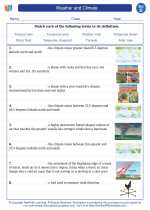Arctic
The Arctic is a polar region located at the northernmost part of the Earth. It is characterized by its cold climate, with temperatures often below freezing, and its unique ecosystems.
Climate
The Arctic has a cold and dry climate, with temperatures that can drop as low as -50°C (-58°F) in the winter. The region experiences long periods of darkness in the winter and long periods of daylight in the summer due to its proximity to the North Pole.
Land and Ice
The Arctic is covered by ice, including the Arctic Ocean, which is mostly covered by sea ice. The ice plays a critical role in regulating the Earth's climate and is home to a diverse range of wildlife, including polar bears, seals, and walruses.
People and Culture
The Arctic is home to indigenous peoples who have adapted to the harsh environment over thousands of years. They have unique cultures and traditions that are closely tied to the land and the animals that they rely on for survival.
Environmental Importance
The Arctic is an important region for understanding climate change, as it is experiencing some of the most rapid changes due to global warming. The melting of the Arctic ice has significant implications for the global climate and sea levels.
Study Guide
- What is the climate like in the Arctic?
- What role does ice play in the Arctic ecosystem?
- Who are the indigenous peoples of the Arctic, and what are their cultures like?
- Why is the Arctic important for understanding climate change?
[Arctic] Related Worksheets and Study Guides:
.◂Science Worksheets and Study Guides Fourth Grade. Weather and Climate
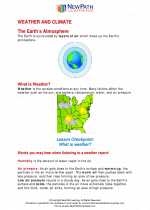
 Activity Lesson
Activity Lesson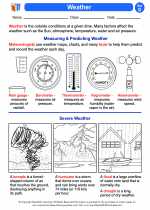
 Worksheet/Answer key
Worksheet/Answer key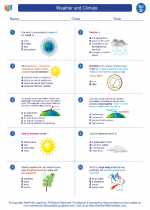
 Worksheet/Answer key
Worksheet/Answer key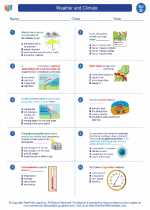
 Worksheet/Answer key
Worksheet/Answer key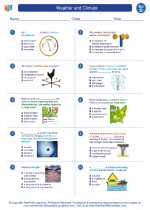
 Worksheet/Answer key
Worksheet/Answer key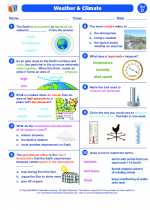
 Vocabulary/Answer key
Vocabulary/Answer key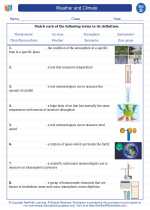
 Vocabulary/Answer key
Vocabulary/Answer key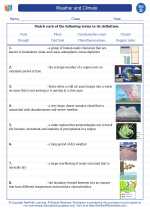
 Vocabulary/Answer key
Vocabulary/Answer key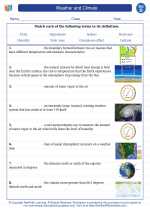
 Vocabulary/Answer key
Vocabulary/Answer key